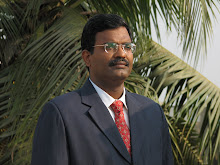The Bhargava committee report on review of IIMs is out and as expected the usual noises about autonomy and MHRD control are being made in the media. I am surprised how hypocritical people are! The committee analysis has been accurate in almost all counts. Except for a few anomalies, the suggestions were in the expected lines.
In the name of independence there is an enormous waste of resources due to duplication of activities across IIMs. One example is the admission interviews, where top students are interviewed by every IIM panel!
The systems, policies and procedures in IIM A, B & C are different due to historical reasons, but what is the need to have different policies for faculty compensation? The committee accurately points out that the 'overtime' payment system does not add value, leading only to mercenary activities. For example, a faculty member of IIM Indore is supposed to have made more than Rs 20 lakhs in a YEAR in conducting the so called lower end training programs for corporates. In another young IIM, faculty members are exploited in the name of contractual appointments, to the extent that their total compensation in an year does not cross Rs 3 lakhs, which is less than what a fresh engineer from a decent college gets!
The difference between the best and lowest compensation across IIMs would tell a undigestable tale. Ironically the highest compensation is not of the same level across IIMs. Especially in the newer IIMs the difference could be more than five times in the top earnings itself. This is not because of faculty competencies but due to the differences in policies and rules for consulting and training assignments. Its high time that the government and the country accept the fact and take remedial actions to ensure that faculty compensation across IIMs are comparable and same system is implemented in the new IIMs to be started rather than letting them reinvent the wheel (that too inefficiently ineffectively)!
The major issue of corporate governance in IIMs is a well kept secret. At one level people in the knowhow would state that the government has been open to many proposals from IIM boards. IIM directors have been restricted by the collegial decision making by faculty where one determined professor can undermine any major decision. However there were many instances where an IIM director had pulled wool over the BoG eyes and acted in their own interests. This is very true of the smaller IIMs where the faculty council does not have the history and maturity to provide leadership to the institute leading to a situation where suitcase directors (who visit the insti once in a while) use their post for their personal/career progress at the cost of long term viability.
Another issue is the impact of IIMs on management education in India, which has not been upto expectations and neither the boards nor the faculty members seem to be concerned! IIMs role in the apex body for management education in India AICTE is minimal and IIMs also should be blamed for the same.
The Committee's detailed suggestion on environment friendly buildings, etc for the new IIMs are pertinent considering that the basic facilities in the youngest IIMs are lacking in minimal infrastructure because the decision makers were non academicians. It would be better if experts from management education with breath of experience are involved in the initial stages and a clarity in environmentally friendly design and scale of operations is maintained.
I am unable to understand the committee's decision on restricting the 'overtime' payment to 15% and the suggestion for a bond for doctoral students. Very few would be willing to commit 9-10 years of their life for the a career in academics in India. The overtime payment issue needs a broader discussion and consensus with equity and transparency. The present system is not transparent enough to the extent that the compensation for various activities for faculty members across IIMs are not available in the public domain and there is a systematic effort to keep it opaque.
Wednesday, October 29, 2008
Subscribe to:
Comments (Atom)



